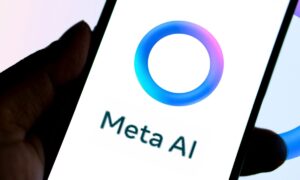Grok Assists Trump in Monitoring Public Administration

Exploring the Controversial Use of AI in Government Operations
Recent media reports have raised concerns over how the Trump administration is employing artificial intelligence, particularly the Grok chatbot developed by Elon Musk, within various federal agencies. This practice has sparked debate regarding transparency and ethics in government operations.
The Role of the Department of Government Efficiency
The Department of Government Efficiency (DOGE) was established to enhance administrative efficiency. However, it has come under scrutiny for allegedly using coercive methods to promote a specific political loyalty among federal employees. Two anonymous staff members from the Environmental Protection Agency (EPA) have claimed that there is increased pressure to avoid expressing any views that might be seen as critical of Trump or Musk.
Surveillance Tools and Self-Censorship
Although there has been no official statement confirming the surveillance, EPA employees have reported a culture of caution where they are advised to be mindful of their communications. Software tools such as Microsoft Teams and other internal messaging platforms are allegedly being monitored, contributing to what some describe as a climate of self-censorship. Concerns have escalated due to the potential repercussions for employees who express views not aligned with the current administration. Notably, approximately 600 staff members have been placed on leave since January, contributing to worries about the future of the agency.
Ideological Purges or Budget Cuts?
Critics from various political backgrounds have suggested that DOGE’s focus on reducing workforce numbers is an ideological purge disguised as budget cuts. They argue that the aim is to weed out any government personnel who do not support the administration fully. Yet, an EPA spokesperson firmly denied these claims, describing them as "completely false" and stating that no monitoring of personal communications occurs.
Legal Ambiguities Surrounding DOGE
The lack of transparency regarding DOGE’s operations has sparked significant legal and ethical questions. Because the department operates within the Executive Office of the President, it is believed to be exempt from many federal documentation laws. Critics argue that this allows them to bypass important data security regulations, potentially leading to unethical practices.
The Integration of AI in Government Communications
There are concerns that the integration of AI tools like Grok into government operations could lead to mismanagement of sensitive data. Elon Musk, as a special government employee, is under a legal obligation not to leverage his position for personal gain. Nevertheless, the deployment of Grok raises red flags; it may be used to gather sensitive information that could benefit Musk’s business interests.
Methods of Communication and Transparency Erosion
Another troubling aspect involves the use of encrypted applications like Signal, known for their auto-deletion features. Critics argue that these tools hinder compliance with freedom of information laws, thereby limiting public access to government communications. Furthermore, reports suggest that DOGE might be using platforms like Google Docs for drafting documents without leaving a traceable record, circumventing established protocols for preserving federal documents.
Data Collection and Privacy Concerns
There are allegations that the administration’s data collection practices extend into potentially abusive territory, particularly regarding the Department of Education. Claims have emerged that DOGE has obtained personal information on millions of Americans without their explicit consent, including sensitive details like incomes, Social Security numbers, and marital status. Legal actions have been taken to demand transparency from DOGE, but there have been delays in the release of requested information.
The Dual Nature of AI in Public Administration
While the EPA maintains that AI will not influence hiring or personnel decisions, it admits to exploring its usage for improving administrative efficiency. The challenge lies in distinguishing between beneficial innovation and a means of control. As AI continues to evolve and permeate various sectors, particularly within government, its implications for democracy underscore the need for ongoing discussions about ethics versus technological advancement.
The case surrounding DOGE exemplifies the precarious balance between embracing new technologies and safeguarding democratic values and transparency within public institutions.






